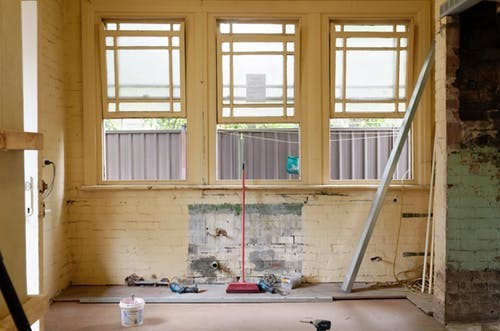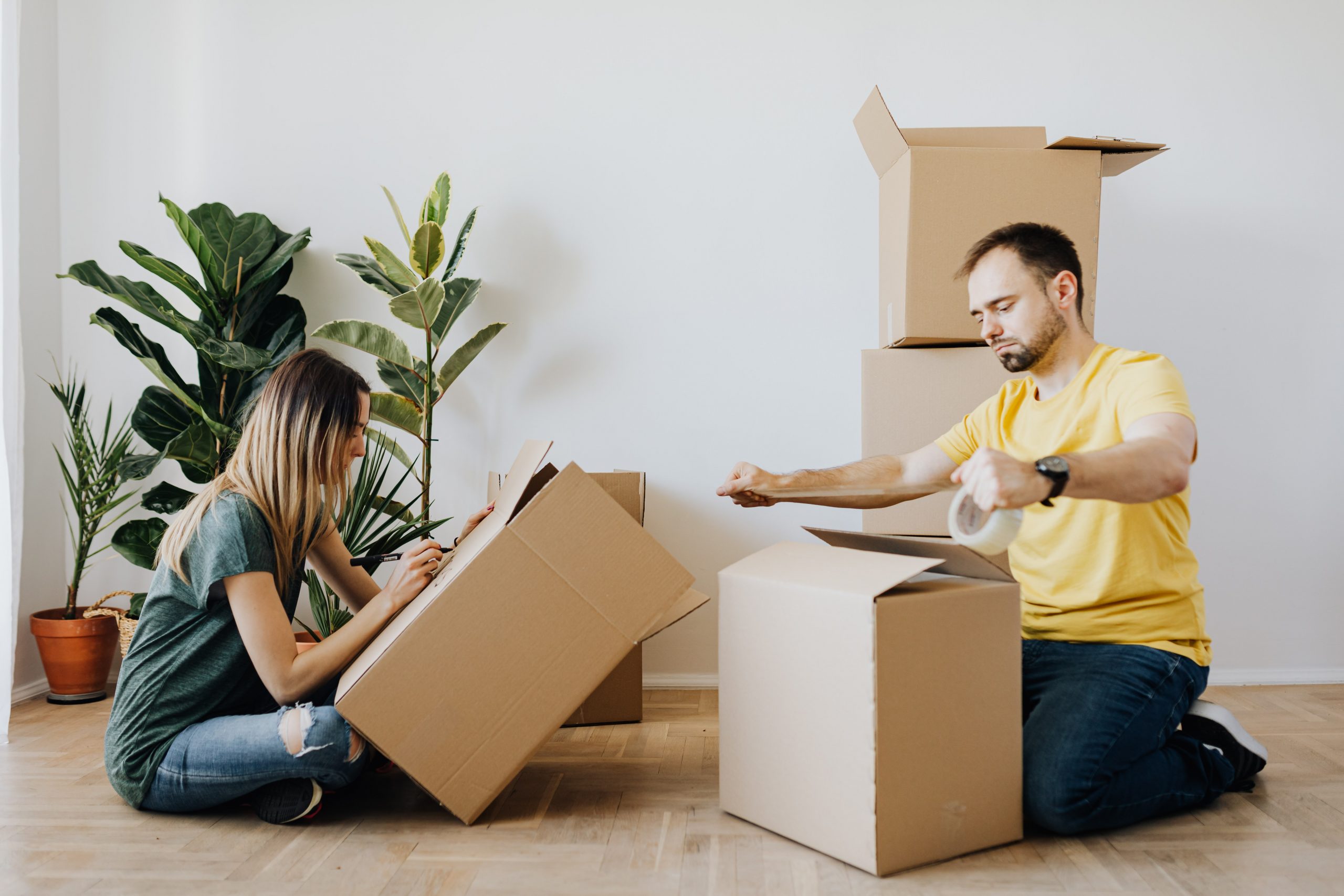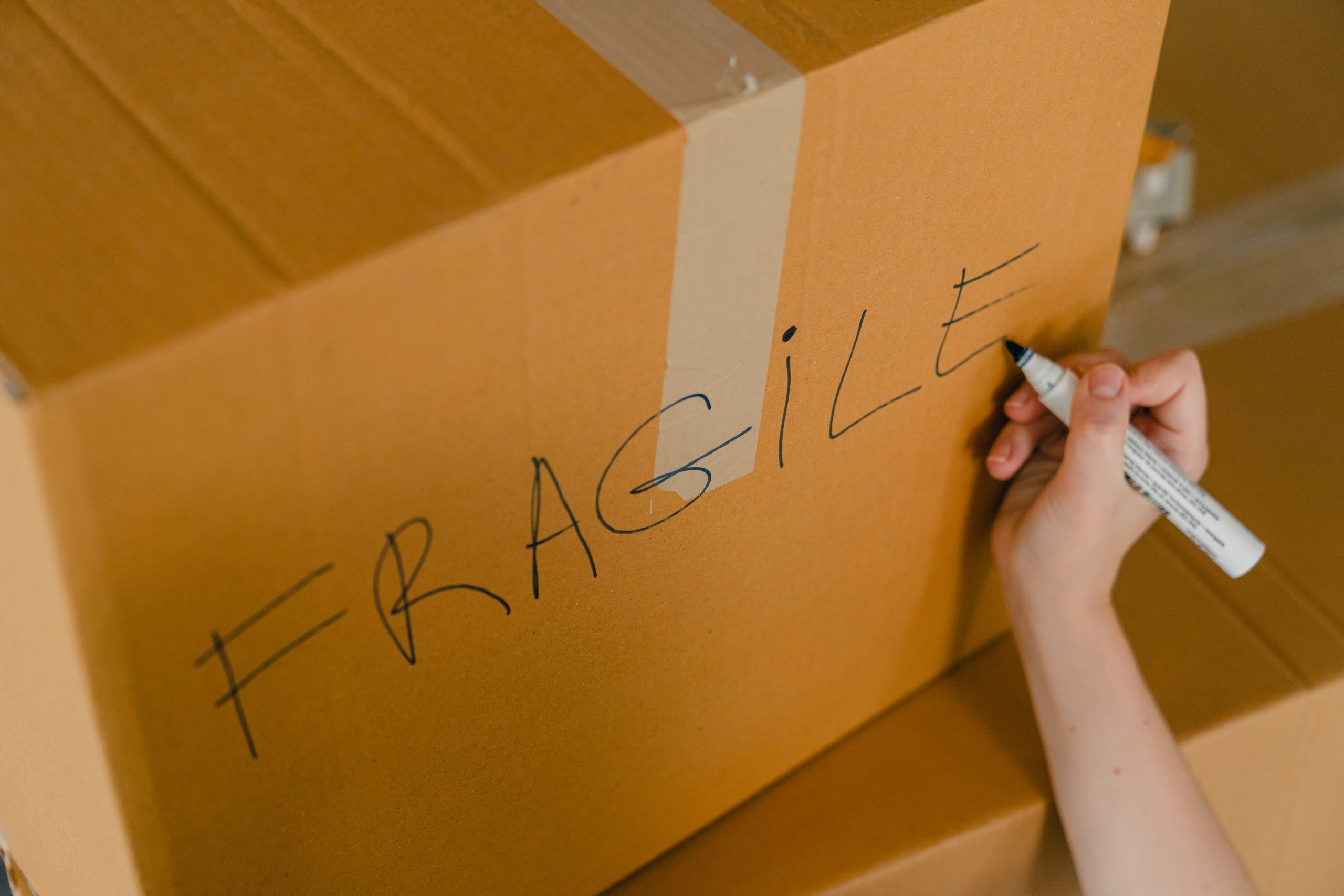Are you going to move to your new home? Do you have a plan in place or a moving home guide to refer to?
Moving to a new home is an overwhelming experience. But if it’s not done right, it can cause inconvenience at a later stage. It’s a cumbersome process, and you need a lot of effort to make it smooth and hassle-free. People often haphazardly begin their transition process. It not only causes trouble but also causes a great deal of distress to the family members who are moving. There is no clear plan in such cases.
We understand that moving home is an uphill task. Sometimes people find it difficult to do it without any reference or guidance. That is why we have designed a comprehensive moving home guide for all those who are moving homes in the UK. The idea is to help you manage your things as you move into your new home without worrying about it.
This transition takes about 8 weeks (on average) whether you are renting or buying for the first or the nth time. This guide consists of a comprehensive yet informative checklist for your reference.
What could you expect from this guide?
This guide covers all the things you need to do, week after week before you move in. You can study this guide into 4 parts.
1. Weeks in advance
2. Before you move
3. The day of the move
4. After you’ve moved
We have tried to provide informative tips at each step to make things easier for you. At the end of this guide, you can also use our downloadable checklist.
8 weeks before your move
1) Finalise your moving date
Get a final date officially confirmed with your house seller and conveyancer once the property has been finalised. Keep enough buffer to plan and execute your move. Don’t rush things because this is an important step, and it can cause inconvenience if not done right.
Tip: Keep a buffer of at least 8 weeks to execute your shift smoothly.
2) Inform your landlord
If you have rented out your current home, you will need to inform your landlord of the moving date.
Tip: Check your tenancy agreement, as your notice period may be different than what you expected.
3) Hire a mover
If you’re planning to move on your own, hire a van from a reputable hire company. In case you plan it through a professional service, carry out a thorough investigation of the companies, and book the mover as soon as possible before the dates are not available.
If possible, avoid shifting in the summers as most movers are booked in advance as the peak time is. You should not forget to inquire about the insurance details if they are covered.
Tip: 1) Plan your moving dates in the middle of the week as charges on a weekday are always cheaper as compared to those on a weekend. 2) Book your hiring service as soon as possible to avoid higher charges. 3) Plan your moving dates in the middle of the week as charges on a weekday are always cheaper as compared to those on a weekend.
4) Pre-plan your leave of absence from work
Plan your leave with your employer to move your home on the final day. It is recommended that you take enough time out to assist in the final shift even if you have hired the best mover company.
Tip: Take at least 3 days off- for a day before, the final day, and a day after you have shifted.
5) Prepare a list to notify the change of address
Start creating a list of people you would like to know about your change of address and update it regularly till you send an official notice to everyone. Don’t miss out on important contacts, as this may cause you trouble once you’ve moved out.
Tip: Download our checklist to make sure you haven’t missed out on anyone.
6) Security Audit of your NEW HOME
Get acquainted with your new neighbourhood and conduct a security audit of your home. Since you’re new to this area, you need to find out about the crime patterns from your neighbours or the police. Check and confirm if there are any existing home security solutions in your home. If you got one, GREAT! You must do a full inspection of the operability of the security system with the help of a professional security service provider to check the health of your device.
FHA is a home security expert and offers a suite of customised home security solutions to residential and business properties. If you have a home security requirement, you can speak to our team on 0800 717 8727 or 020 3137 8727 and can get the best recommendations for your property.
7) Repair work

It’s always important to leave your home in good shape before you move out. Take note of the repair work you need to do in your existing home, whether you’re renting or selling your home.
Tip: If you’ve rented the property, it’ll help you get your full deposit money.
8) Book cleaners
You are expected to hand over the property in good condition, so get in touch with professional cleaners. Some real estate agents insist on having the cleaning done through a professional service provider and ask tenants to provide evidence. This, too, plays a major role in getting your full deposit.
Book them in advance for a later date, preferably 2 weeks before your moving date once you have packed most of your stuff.
Tip: Consider using professional cleaning services for oven, carpets, garden and bathrooms.
6 weeks before your move
1) Moving supplies

Make a list of supplies that you’re going to need to pack your stuff. You’ll need boxes of different sizes and shapes to pack your items. Use bubble wraps and other protective wraps for fragile and valuable items to keep items safe until they reach their destination. If you use a professional moving company, you will be provided with boxes and other wrapping items in advance as part of their service.
Tip: Don’t keep the boxes empty, you can put some packing paper or clothing on to fill it up. As movers often do not move loosely packed boxes.
2) Declutter your home

It’s time to declutter your home. The best way to do this is- room by room. Scan your wardrobe and check if you’ve got any unwanted clothes to donate. Prepare a list of items that you want to sell, donate, or discard, and try to clear all of these items as soon as possible, as it may take most of your time. Start packing the items in your boxes.
Tip: To make it easier, you can start with non-essential or seasonal items that are not often used.
3) Transferring of School Records
If you are relocating with children to a new location, you need to inform existing as well as future schools about the relocation of your children. The new school will need a set of documents that can only be arranged through the existing school. Make sure you’ve already planned it for a hassle-free transition.
Tip: For in-year arrangement, please speak to the local council to get details about the school arrangements in your area.
4) Set up a Home Security Solution
The home security system plays a huge role in protecting your home from intruders, which is why it is of great importance. If you don’t already have a system installed, please get in touch with a professional service provider. It begins with a property assessment that usually takes about 5-6 weeks before you move in. The survey can be done either on call or in person, and you can get a recommendation on the appropriate security systems for your home based on your requirements. Choose and finalise the best home security system that suits your requirements.
Tip: If you do not yet have access to your property, call us at 020 3137 8727 and our survey specialists can do a remote security survey and make security system recommendations to you, ready to be implemented once you collect the keys of your home.
5) Transfer of Service
It is time to contact your service providers and transfer the services to the new house if they provide services in the new area. In case you wish to change your utility supplier, now is the best time to get into action. Check and compare the best gas and electricity supply deals and evaluate what’s best for you.
In the case of gas and electricity supplies, you can easily exit the contract and switch to another supplier if you are on a standard tariff plan. However, you probably need to pay a penalty fee if you are on a fixed-term contract and are willing to change the supplier. But if you have made the change request in the last 49 days of your contract, you can get off with the penalty fee.
Tip: Key list of suppliers to contact at this stage. 1) Gas and Electricity- This is pretty straight forward, but you’ll still need to give your final meter readings when you’re out. Some providers are asking for longer notice to terminate or move utility supplies. We, therefore, recommend that you check your terms at this point. 2) Broadband and TV- Internet and TV providers usually need 2 to 6 weeks to arrange for your services to be moved. It’ll be easy if your new home already has all the services and connections in place. Otherwise, this will include visits by Sky or BT Openreach engineers.
4 weeks before your move
1) Reduce food purchase
Stop over-buying groceries. Instead, start consuming the food stored in your refrigerator or cupboards to avoid wastage.
Tip: Do not transfer frozen and refrigerated food on the day of your move as it either becomes contaminated or wasted.
2) Label your boxes

People are often unorganised when they plan to move to a new property. They end up hastily putting items in the boxes, making a mess. Packing items in an organised way is going to save you a lot of time. Create your scheme to label the boxes you’re comfortable with. It could be numbers, names, or colour patterns that make it easier for you to identify your things. This will make your life easier once you’re in your new home.
Tip: Use the right size boxes, place heavy items in the small box, and place lighter items in the larger box. This will help you to lift the boxes if you are a DIY mover.
3) Register to Vote
If you’re moving to a new location, don’t forget to register with your new address. This will give you the right to vote in the elections.
Tip: You can visit GOV.UK and follow the steps to register.
4) Change GP Practice
If you’re moving to another location, it’s best to change your GP practice as soon as you move in. Do thorough research on the best GP practices available in your new area and register yourself and your family. Please inform your current GP practice that you are leaving.
Tip: Care Quality Commission has an excellent website that allows you to search and learn about the best GP practices in your new location.
5) Moving your prescriptions
Check out the best pharmacy in your new area. You need to inform your current pharmacy that you’re leaving. You might probably need to take a prescription from your doctor to inform the new pharmacy if any.
6) Check out the property before you move in
Find the time to take a walk through the property and check that everything is in place as per the contract. If something is missing or not fulfilled as promised, contact the estate agent immediately.
Don’t forget to check out the interiors of the house before you move in and note down all the measurements of the rooms to avoid any problems when putting the furniture inside the house.
Tip: It’s going to be a good idea to carry measuring tapes, so you know the exact measurements of the rooms to find out whether your existing furniture or the new ones you’ve ordered fit into the room.
2 weeks before your move
1) Prepare a list of essentials
Start preparing a list of things you’re going to need for the first night in your new house. The first few days may be a little messy when you set up your new house. All the essentials must be handy, and you don’t have to struggle to find it out from your boxes.
Tip: You can keep a separate labelled box for these items to make things easier for you on your first day at the new house.
2) Deep Cleaning
After you’ve finished packing your goods, it’s time to deep clean your house thoroughly. We are hoping you must have booked professionals to clean your house as stated above (8 weeks). Now is the time to call them and get everything cleaned up.
Tip: Check your lease agreement if you have rented the property. The agreement often outlines things you’re expected to do before you leave the house. Don’t miss out on any of these things, as they will have a direct impact on your deposit.
3) Water, Sewer & Garbage Services
Get information on the water, sewer, and garbage services in your new area. Make sure you contact them so that you can get these services from the very first day of your move. Contact your city’s public utility services before you move in.
Tip: Visit GOV.UK website to get details about the garbage collection in your new area and GOV.UK to get details about your water and sewer service provider in your area.
4) Order your new Security solution for your new home
Once the property assessment has been done, you can choose the best security system for your new property. This is the time when you can place your final order and schedule an installation service call with your service provider once you have moved in.
Tip: We, at FHA, recommend carrying out the installation of your new security solution the day after you collect the keys. Our installation lead time is 5 days typically from the date of order, while the industry average is roughly 3 weeks.
5) Notify the change of address
It’s time to get on with the list that you’ve prepared for your new address notification. Send a message about your new address and the date of your move to everyone on the list. Don’t miss out on anyone-family, friends, local authorities, household authorities, health care, post office, etc.
Download our Moving Homes checklist.
1 week before your move
1) Final check
Check if all of your non-essential items have been properly packed in the boxes. Prepare a separate box of things you’re going to need in your early days in your new home. Please refer to the list of essentials that you prepared a few weeks ago.
Make a final check of all the rooms before you leave just in case anything remains to be taken care of.
Tip: Label each box by the name of the room it is going to and if it is necessary or not. Saving a lot of time for everyone as the movers put them directly in the right place for you.
2) Dismantle furniture
Start dismantling your furniture, such as cupboards, tables, and drawers, and get them ready to move to the new property on the final day. If you hire a mover to move, check with them what needs to be done at your end. Also, let them know if you have any oversized furniture so that they come with all the tools that will be needed to carry it on the last day, or else it may cause a delay on the day of your move.
Tip: Check with your mover if they can dismantle furniture as some movers dismantle, transport, and assemble your furniture back really fast for a small fraction of the cost.
The Final Day
1) Final Walkthrough
Do a final check before you leave, as you don’t want any of your stuff left behind. Inspect the lights, gas, water, and electricity thoroughly and make sure they are switched off before you move out. Verify that all doors and windows are locked properly.
Tip: Checklist for the final walkthrough. Turn all the lights off Check that all the taps are closed Close all the doors including the garage door Flush toilets Turn off the heat and air conditioning Close all of the windows.
2) Dispose of Garbage
Dispose of the garbage or other items that you would like to rid of before you leave. Please don’t leave it to the new owner to clean up.
3) Meter Readings
When you leave your home, take note of all the required meter reading. Make sure that your suppliers are informed before you depart to avoid any unnecessary charges for those services.
Tip: Take photos of the meter readings for your reference and submit it as a record on your signed inventory.
Once you have moved in

1) Deep Cleaning
Once you’ve moved in, make sure you’ve cleaned your house thoroughly before you unpack your goods. Prefer to set up your furniture first before you unpack your boxes, or it might be not easy to move everything around to make room for the setup.
Tip: Make sure you have a separate box of supplies required to clean your house like rubber gloves, duster, broom, bucket, etc.
2) Change the locks
If you have purchased the property, you should change the locks as soon as possible. Don’t delay because someone might still have access to your house. This is a small investment worth every penny. It’s pretty simple as you can get the help of a local professional locksmith who would normally take a few hours to sort this out.
Tip: Buying the lock with the right measurements is important so that it fits in your home. Before you purchase a new lock, measure your existing lock.
3) Set up the security system
If you’ve ordered a security system for your property, make sure the engineer arrives on the next day of your move. Ensure that the system is fully installed and operational.
4) Council Tax
You need to register to pay the council tax in your new area. You will need to contact both the councils (old and new areas) and update the information.
Tip: Visit GOV.UK website to check your local council and register yourself for the council tax.
5) Contact the utility suppliers
Once you have moved in, follow up with all the service providers we mentioned above if the service has not yet started.
Conclusion
We hope this article helps you to streamline your things while you are planning your transition to your new home. Don’t forget to download our moving homes checklist to keep your things handy and manage your stuff throughout the process.


No Comments Yet